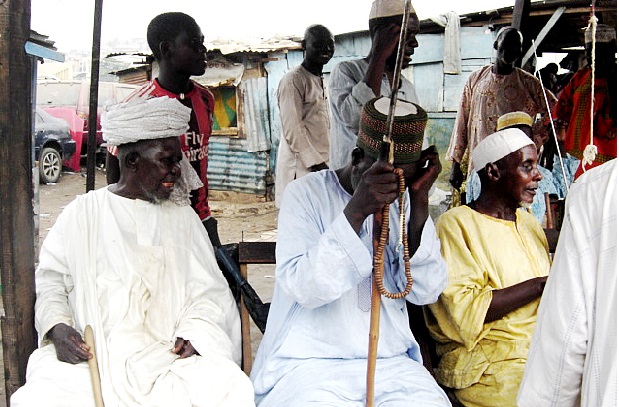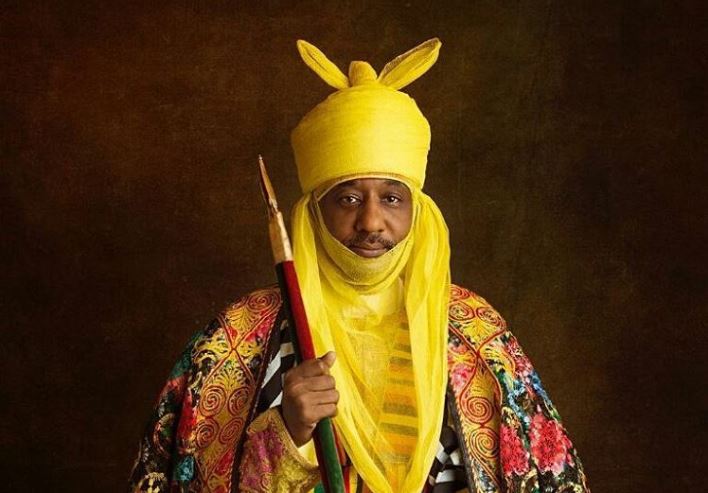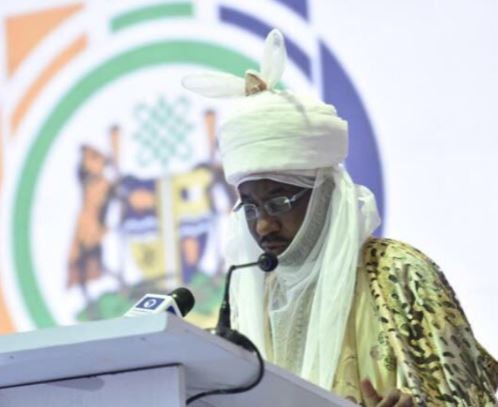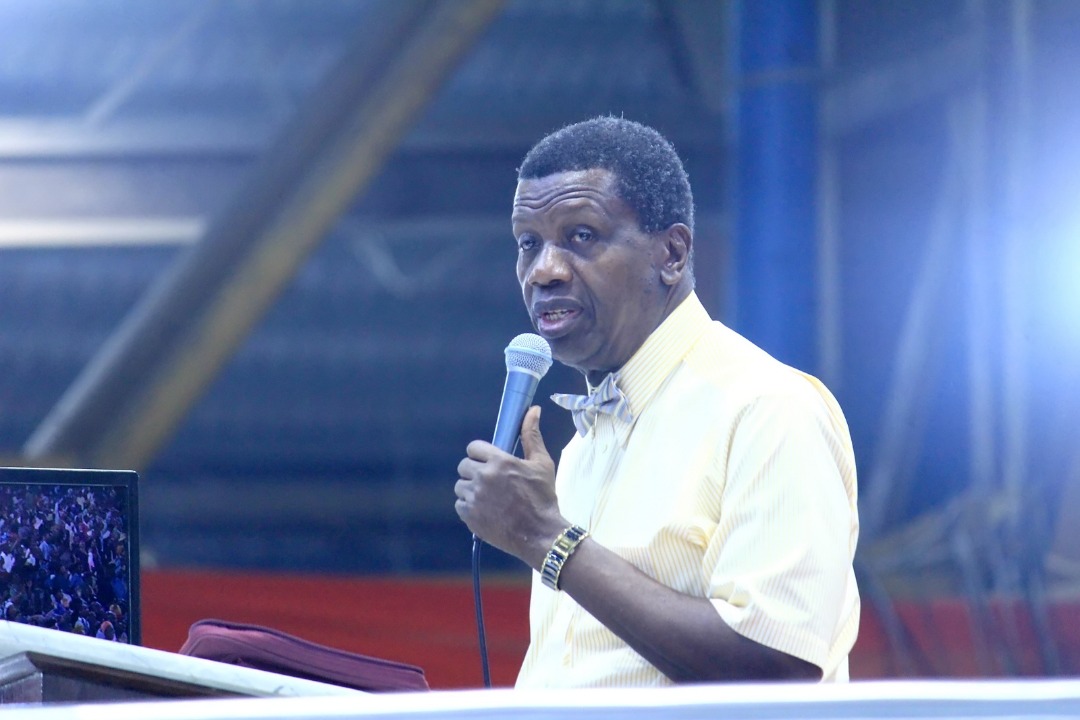If there was dividend for controversy, the stock of the Oluwo of Iwo, Oba Abdul-Rasheed Akanbi, would be perhaps the most bullish among investors in royalty, coming next in demand to that of the Emir of Kano, Sanusi Lamido Sanusi.
The Oluwo of Iwo cannot help staying out of controversy, and he goes the extra mile to stir up even the most vexatious kind. At a recent peace meeting over a land dispute, the Oba, 53, officially fourth in the hierarchy of traditional rulers in Osun State, was alleged to have punched the Agbowu of Ogbaagba Oba Sikirulahi Akinropo, who dared to interrupt him.
“I was seated on the same row as he, next to the Oluwo was Alhaji Kamal, the Chairman of Iwo Local Government,” the victim, Oba Akinropo, who is in his late 70s, reportedly said. “I told him (Oluwo) to take it easy, but the reaction I got from him was different punches to the extent that I fainted.”
The Oluwo admitted there was a “scratch” on Oba Akinropo’s face, but denied punching him, while witnesses including the local government chairman and the Assistant Inspector General of Police in whose presence the assault allegedly took place, have refused to say if it was a punch or the sheer fury of the Oluwo’s anger that caused the bruise, and landed Oba Akinropo on the floor.
Advertisement
Whatever it was, the Osun State Council of Traditional Rulers is not amused. A committee has recommended the Oluwo’s suspension for six months but in a response that guarantees the continuation of the war by other means, the Oluwo said his suspension is only “audio suspension.”
In any case, he added, he does not even need to attend or be invited to any meeting by the Council to function. Reports indicated that he has since made a U-turn and accepted his suspension, yet it is being said just outside the Oluwo’s palace, that even the snake of his acceptance, has its hand inside its stomach. He would show his hand sooner than later.
What’s the problem, really? If you believe the Council, it had to act because the Oluwo’s conduct is unbecoming of his office. He carries on as if all traditional rulers in the state, if not in whole South-west, received their staff of office from him and conducts himself as if the others have a lesson or two to learn from him upon which their continued reign depends. Whatever motivates him, the Council said, the Oluwo’s cup is full and his alleged assault on Oba Akinropo was the final chance to put him in his place.
Advertisement
But the Oluwo has a different story. He said the traditional rulers may not like his style – and they’re not obliged to – but they cannot deny that they have been stealing land from the people and oppressing the poor for many years. His interest is to set his people free. That was why he insisted that all traditional rulers in his domain must clear with him before selling land that is more than 10 acres, which is at the heart of the latest dispute.
If matters were that straightforward, the Oluwo would not find himself increasingly isolated among sections of kingmakers in his domain and also ostracised by a significant number of traditional rulers in the state and outside.
For all he may be trying to do to save the people, the Oluwo’s needless controversies have done far more damage to his image and the throne than he can hope to repair by defending the people against purported land-grabbing monarchs.
Prominent Yoruba Obas from Akarigbo Oyebajo to Adeniran Adeyemi II, and from Olateru Olagbegi to Sikiru Adetona, have suffered for their convictions and overcome without the notoriety of being in the eye of the storm over women, sex, trash-talk or throne-status rivalry.
Advertisement
To be sure, I’m not talking about iconoclasticism here or about a ruler who, having seen the world and returned to his homestead, intentionally chose to be different and radically fresh. No, it’s not even about being a maverick. It’s avant-gardism that borders on rascality of the motor park variety – something far beneath the status of an Oba.
Four years ago, when the Oluwo usurped Alfas and led Eid prayers, offering sacrifices completely out of his place, it seemed like a freak incident. But it was not. It was, in fact, the beginning of a series of faux pas that later saw him claiming that he would like to be addressed as “Emir or Igwe of Iwo”.
That was not all. After wrangling with the Ooni over the right of accession to the Ife throne, the Oluwo committed the notorious novelty of crowning his Canadian wife queen after his coronation only to divorce her later in a spectacle at which social media was given front-row seat.
Yet this was the same man who had argued, against advice, that from his own history book, the first female Ooni of Ife, Ooni Luwoo, wore a crown and he was only imitating that legacy even if it means turning tradition on its head. In a script surpassing the stuff of Nollywood, the Oluwo later accused his queen of teeming up with one of his senior chiefs and former ally, Abiola Ogundokun, in an attempt to poison him.
Advertisement
The Oluwo is only five years on the throne and with age and energy on his side there’s so much that is expected of him. If he is genuinely interested in standing up for his subjects and bringing a breath of fresh air to royalty, that’s a good thing and his popularity among relatively young people in his domain indicates a certain degree of acceptance and approval.
But he is cashing this currency in a way that suggests he is more interested in needless controversies and self-aggrandizement than in the well-being of his subjects and community. His current posture and conduct will only divide and polarise communities already depleted by factional politics, poverty and oppression. The Oluwo cannot compound the misery of the same people he claims to love and serve.
Advertisement
So far, the state government has not helped matters. Its original intention of letting the traditional rulers sort themselves out might have been a good idea initially, but it’s now as good as playing the ostrich game.
The current official policy of see no evil, hear no evil and do no evil would have been perfect if the chairman of Iwo Local Government and the Commissioner for Local Government and Chieftaincy Affairs – both state government officials – were not dragged in as witnesses at the crime scene.
Advertisement
Since elders, especially the elite in Iwo, are loath to get involved and the Council of Traditional Rulers appears to have reached its wit’s end, while the police are happy to be bystanders, the state government has a duty to call the Oluwo to order. And it should.
Pretending that the crisis will go away is futile; and treating the Oluwo like a wayward schoolboy who will sit up by a mere wink of the eye portrays the government as weak or – even worse – complicit. Not only Osun, other states may also need to consider stricter vetting processes before appointments: too many camels are passing through the needle’s eye.
Advertisement
Perhaps the Oluwo means well. Right now, however, he obviously needs just as much help to find his way as the community he is trying to save.
Ishiekwene is the MD/editor-in-chief of The Interview
Views expressed by contributors are strictly personal and not of TheCable.
Add a comment







